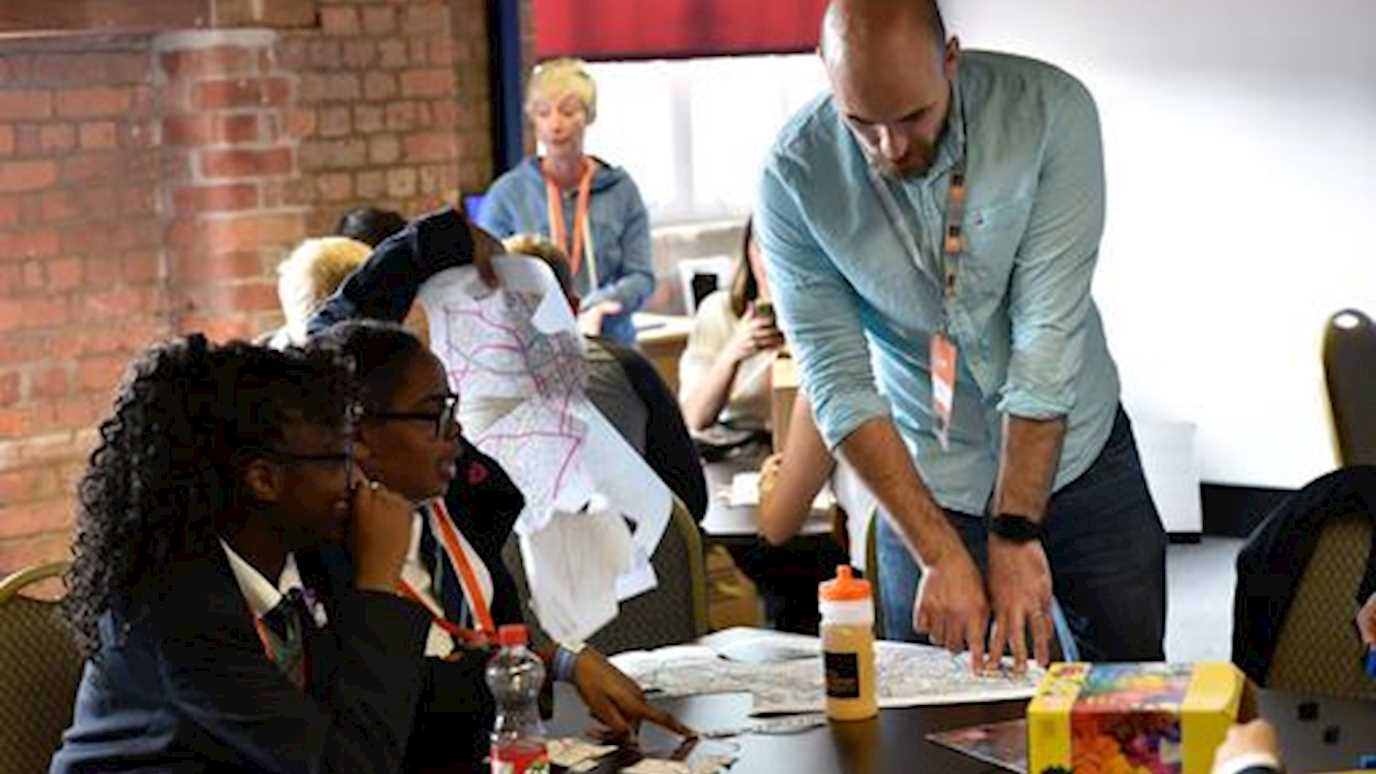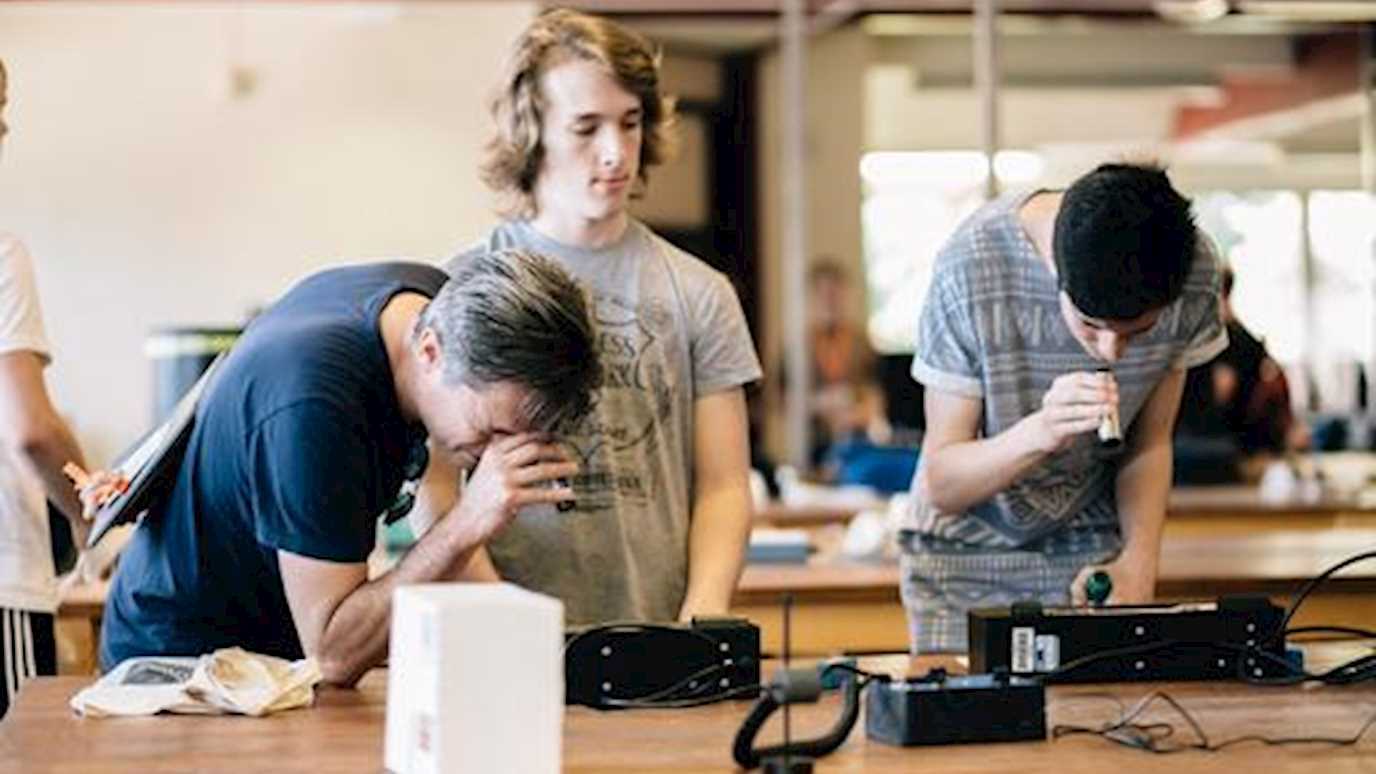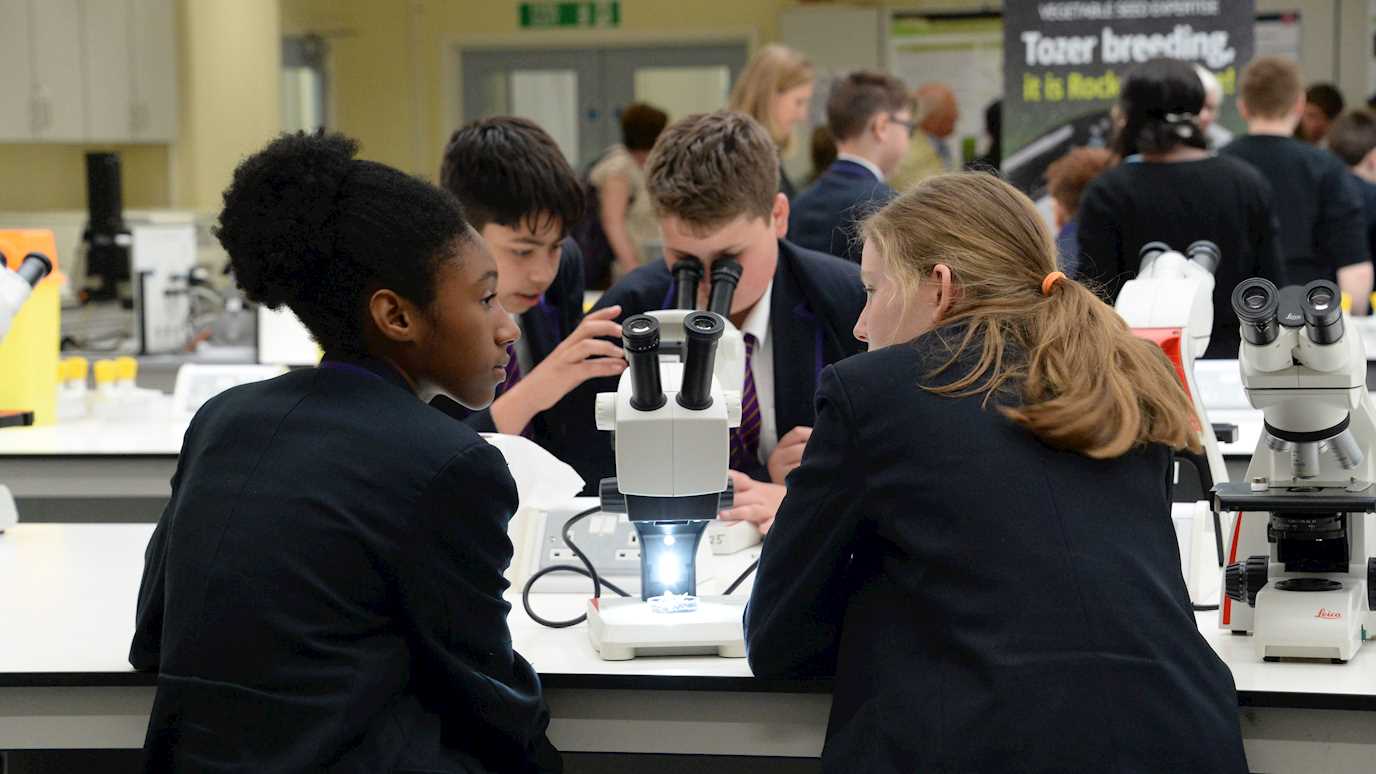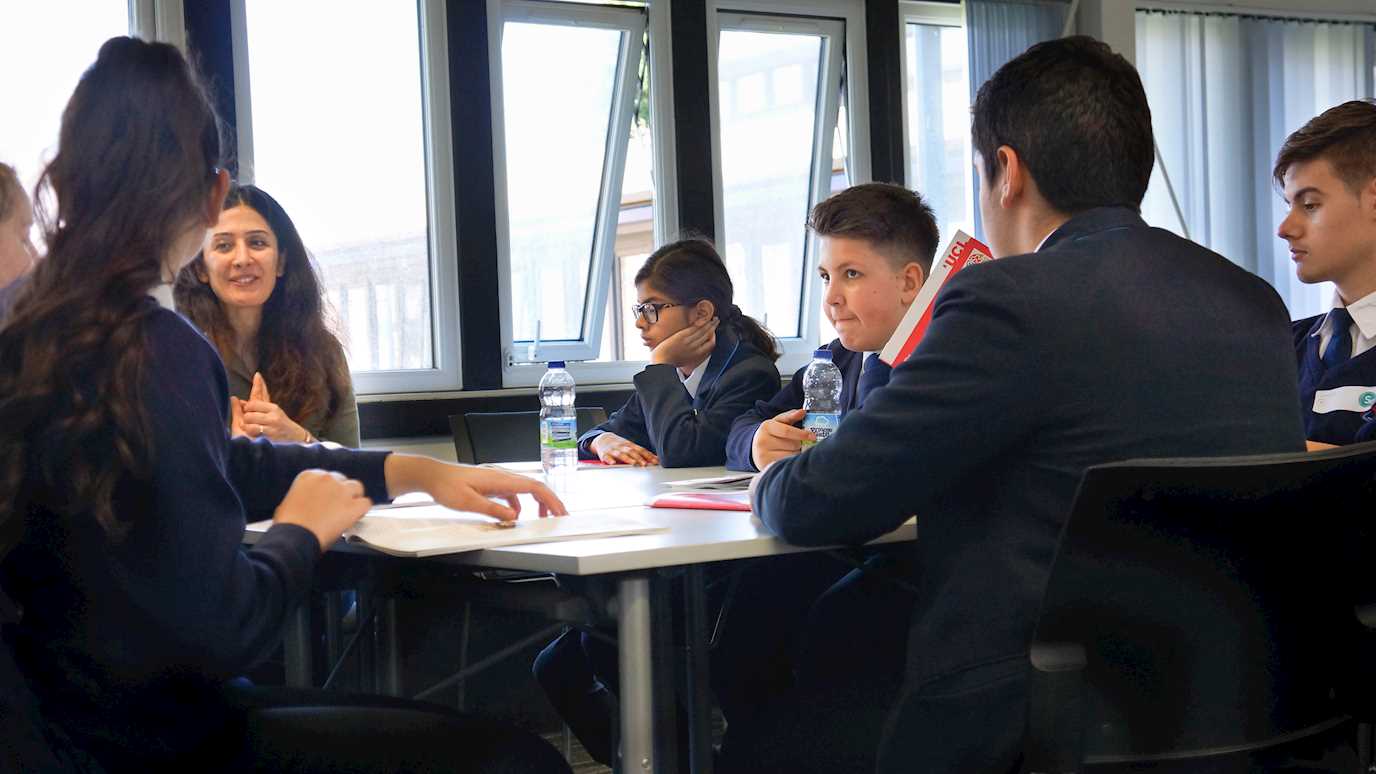We’re dedicated to improving public and student understanding of our planet and Earth Sciences, as well as sharing our enthusiasm for the world around us.
We have developed some crib sheets, complete with fun practical exercises, aimed at Year 12 / 13 students.
| Module 1: Development of practical skills in geology | Field Skills |
| Module 2: Foundations in geology | Introduction to Palaeontology Igneous and Metamorphic Petrology Introductory Sedimentology |
| Module 3: Global Tectonics | Global Tectonics Earth Structures |
| Module 4: Interpreting the past | Introductory Sedimentology |
| Module 5: Petrology and Economic Geology | Igneous and Metamorphic Petrology Mining Geology Fluids and Geological processes |
| Module 6: Geohazards | Geohazards |
| And for a bit of fun | Volcano in the kitchen |
|
We have created a 'Tools for Schools' micro site which we hope will prove useful for teaching of the A-level syllabus in Physical Geography. There are a selection of prediction models covering the water-cycle, the carbon-cycle, and simple climate-change; topics which are core to the A-level specification for Geography in England. Follow this link https://estfs.rhul.ac.uk |
|
Here is some free javascript software that is used in geoscience teaching. |
Visiting your school
We’re happy to give talks on any of the hot topics in Earth Sciences.
Email Prof David Waltham to arrange a talk.
Visiting your school
Talks on --
General Geology / Earth Science
| A brief history of geological time | Amy Gough |
| Precambrian geology and the origin of life | Euan Nisbet |
| Hydrogeology of London | Jonathan Paul |
| Kitchen cupboard science: How custard, ketchup, and a tea bag hold sedimentary secrets | Amy Gough |
| The Ocean from a geological perspective | Javier Hernandez-Molina |
| Exploring the depths: an introduction to Marine Geology | Javier Hernandez-Molina |
| A journey to the jungle: Exploration in the depths of SE Asia | Amy Gough |
| Iceland, where land is born | Matthew Thirlwall |
Talks on --
Studying Earth Sciences at Degree Level
| Studying Geosciences: where it might take you | Howard Falcon-Lang |
| Why I studied science | Martin King |
| Why study the Geosciences? | Jonathan Paul |
| Sustainability and Future Careers for Earth-Scientists | Dave Waltham |
Talks on --
Climate Change
| How fast can climate change? | Alex Dickson |
| Greenhouse gases: measuring and reducing our emissions | Rebecca Fisher |
| Climate Change Solutions | Dave Waltham |
| Energy Transition: Road to Zero Carbon in 2050 | Jürgen Adam |
| Antarctic fossil forests: clues to climate change | Howard Falcon-Lang |
Talks on --
Natural Hazards
| Volcanoes and tectonics | Christina Manning |
| Plates, plumes and pyroclasts | Christina Manning |
| Earthquake-related hazards (SE Asia) and plate tectonics | Ian Watkinson |
| Tectonics and earthquakes, Seismic vulnerability in developing countries | Ian Watkinson |
| Using new technology to combat floods and landslides | Jonathan Paul |
| Fire, ice, fractures, and fluids: Geological processes as seen in Iceland | Agust Gudmundsson |
Talks on --
Deep Underground
| A practical guide to using Google Earth to understand plate tectonics | Ian Watkinson |
| Seeing the Earth Underneath Our Feet - How Does Seismic Reflection Work? | Nicola Scarselli |
Talks on --
Geology at the Poles
| Sea ice , snow, and polar region science | Martin King |
| Antarctica | Javier Hernandez-Molina |
Talks on --
Chemistry
| Using chemistry to understand the Earth | Alex Dickson |
Talks on --
Physics
| What lies beneath? Predicting the Earth with physics | Christina Manning |
| Peering beneath our feet: Physical principles of reflection seismology | Jonathan Paul |
Talks on --
Engineering
| Engineering Geology and its Surprising Discoveries in London | Richard Ghail |
Talks on --
GCSE-Level Talks
| A brief introduction to modern climate change | Martin King |
| Ozone holes | Martin King |
Talks on --
Primary School Talks
| Water rockets and Newton laws (water rockets provided) | Martin King |
























